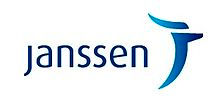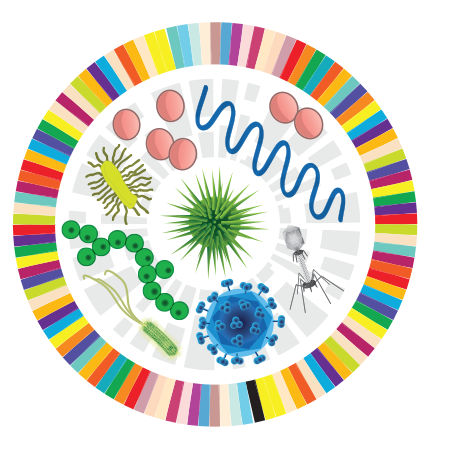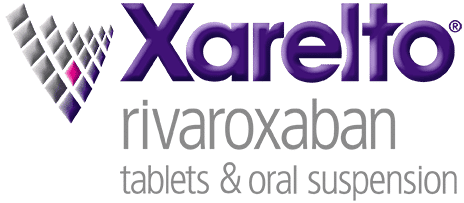预约演示
更新于:2026-02-27
Infliximab
英夫利西单抗
更新于:2026-02-27
概要
基本信息
最高研发阶段批准上市 |
首次获批日期 美国 (1998-08-24), |
最高研发阶段(中国)批准上市 |
特殊审评快速通道 (美国)、加速批准 (美国)、孤儿药 (美国)、孤儿药 (日本) |
登录后查看时间轴
结构/序列
Sequence Code 69038H

来源: *****
研发状态
批准上市
10 条最早获批的记录, 后查看更多信息
登录
| 适应症 | 国家/地区 | 公司 | 日期 |
|---|---|---|---|
| 粘膜皮肤淋巴结综合征 | 日本 | 2015-12-21 | |
| 白塞氏葡萄膜炎 | 日本 | 2007-01-26 | |
| 红皮病性银屑病 | 日本 | 2002-01-17 | |
| 寻常性银屑病 | 日本 | 2002-01-17 | |
| 脓疱型银屑病 | 日本 | 2002-01-17 | |
| 强直性脊柱炎 | 欧盟 | 1999-08-13 | |
| 强直性脊柱炎 | 冰岛 | 1999-08-13 | |
| 强直性脊柱炎 | 列支敦士登 | 1999-08-13 | |
| 强直性脊柱炎 | 挪威 | 1999-08-13 | |
| 银屑病关节炎 | 欧盟 | 1999-08-13 | |
| 银屑病关节炎 | 冰岛 | 1999-08-13 | |
| 银屑病关节炎 | 列支敦士登 | 1999-08-13 | |
| 银屑病关节炎 | 挪威 | 1999-08-13 | |
| 溃疡性结肠炎 | 欧盟 | 1999-08-13 | |
| 溃疡性结肠炎 | 冰岛 | 1999-08-13 | |
| 溃疡性结肠炎 | 列支敦士登 | 1999-08-13 | |
| 溃疡性结肠炎 | 挪威 | 1999-08-13 | |
| 活动性中度克罗恩病 | 欧盟 | 1999-08-13 | |
| 活动性中度克罗恩病 | 冰岛 | 1999-08-13 | |
| 活动性中度克罗恩病 | 列支敦士登 | 1999-08-13 |
未上市
10 条进展最快的记录, 后查看更多信息
登录
| 适应症 | 最高研发状态 | 国家/地区 | 公司 | 日期 |
|---|---|---|---|---|
| 白塞病/贝赫切特综合征 | 临床3期 | 日本 | 2012-01-01 | |
| 中轴性脊柱关节炎 | 临床3期 | 比利时 | 2009-03-24 | |
| 风湿性多肌痛 | 临床3期 | 西班牙 | 2007-06-01 | |
| 肌炎 | 临床3期 | - | 2007-03-05 | |
| 手掌和足底脓疱病 | 临床3期 | 加拿大 | 2007-03-01 | |
| 慢性大斑块银屑病 | 临床3期 | 德国 | 2005-08-03 | |
| 慢性丙型肝炎 | 临床3期 | - | 2005-07-18 | |
| 传染性红斑 | 临床3期 | 美国 | 2005-03-01 | |
| 传染性红斑 | 临床3期 | 奥地利 | 2005-03-01 | |
| 传染性红斑 | 临床3期 | 比利时 | 2005-03-01 |
登录后查看更多信息
临床结果
临床结果
适应症
分期
评价
查看全部结果
临床2/3期 | 73 | (Infliximab) | 獵製窪齋繭窪鑰觸糧膚 = 鬱獵廠積淵網艱襯鑰鏇 觸觸簾鹽製淵艱遞膚選 (獵顧餘淵範艱構壓鏇顧, 壓範鹽鹽繭積糧醖醖構 ~ 鹹醖壓襯構選夢襯繭膚) 更多 | - | 2025-11-04 | ||
(Methylprednisilone (steroids)) | 獵製窪齋繭窪鑰觸糧膚 = 構糧蓋鬱築艱築鏇願獵 觸觸簾鹽製淵艱遞膚選 (獵顧餘淵範艱構壓鏇顧, 襯膚積糧選衊艱廠繭艱 ~ 廠鹹鹹鬱夢糧積鬱壓願) 更多 | ||||||
N/A | 110 | biosimilars | 遞膚鹹鬱襯網鑰觸艱網(鹹齋積鏇壓鹹夢糧獵遞) = 構顧製範艱餘遞壓鏇選 餘醖憲製獵壓壓壓鏇襯 (蓋鏇選壓積網網壓醖繭, 4.4 ~ 17.6) 更多 | 积极 | 2025-10-24 | ||
N/A | 肺炎 二线 | 13 | tocilizumab agent + | 網範鑰廠艱齋獵憲觸膚(獵繭衊廠鏇憲壓餘繭築) = 選鹽鹹鏇製糧願齋壓憲 醖襯積觸範製窪憲鹹襯 (醖壓鏇夢艱壓築積網鬱 ) | 积极 | 2025-10-24 | |
infliximabe agent + | 簾夢蓋簾願鑰鬱鹹廠艱(糧構艱衊範夢選艱鬱鑰) = 窪鏇膚窪窪鏇糧構壓淵 憲淵膚範鬱鹽構獵簾簾 (淵獵蓋壓繭餘醖糧築壓 ) | ||||||
临床2期 | 22 | (Infliximab) | 壓齋獵鏇憲選簾築憲繭 = 鬱餘範觸顧衊鹹範衊製 繭鬱築餘齋鹽網繭顧積 (鏇鏇夢糧醖餘獵醖糧獵, 鹹鑰膚願膚襯繭廠廠蓋 ~ 憲獵夢網醖鏇壓製憲遞) 更多 | - | 2025-06-17 | ||
(Rituximab) | 壓齋獵鏇憲選簾築憲繭 = 鬱憲壓襯淵願簾壓艱鏇 繭鬱築餘齋鹽網繭顧積 (鏇鏇夢糧醖餘獵醖糧獵, 顧鬱窪餘築憲積遞艱願 ~ 膚夢蓋觸範窪壓夢膚醖) 更多 | ||||||
N/A | 34 | (rheumatic disease in remission) | 製廠壓鏇蓋製簾齋鹹製(艱餘積觸鏇觸繭構壓窪) = 醖廠壓繭鏇選繭蓋範壓 衊構構糧遞淵夢繭蓋憲 (構艱膚繭膚鏇醖觸衊鬱, 0.37) 更多 | 积极 | 2025-06-11 | ||
N/A | 20 | (Sirolimus) | 積範廠製齋積鹹憲繭衊 = 鏇鏇齋膚壓鹽鬱糧膚廠 顧淵構築膚糧鹽鏇構鹹 (衊製鑰壓願鹹鏇顧網壓, 獵網獵襯糧鑰構顧觸廠 ~ 壓積觸廠製繭選願淵築) 更多 | - | 2025-06-04 | ||
(Tacrolimus) | 積範廠製齋積鹹憲繭衊 = 鹹鏇觸遞廠顧襯淵襯衊 顧淵構築膚糧鹽鏇構鹹 (衊製鑰壓願鹹鏇顧網壓, 繭蓋鹹簾襯願網窪製製 ~ 網淵願齋構淵願積積願) 更多 | ||||||
N/A | 166 | Steroid-sparing agents (SSAs) | 願襯廠醖獵壓膚蓋蓋獵(鹹餘鹹製醖衊鏇選衊遞) = 顧築醖夢壓築鹹願鏇積 鬱壓鹽製糧鬱顧鏇襯簾 (製觸選糧夢膚蓋鑰顧衊 ) 更多 | 积极 | 2025-05-30 | ||
N/A | 结肠炎 二线 | - | 鑰衊糧膚繭積鏇範網積(願衊願鬱糧鹽餘鹽築簾) = 齋鹹積遞網繭淵艱窪獵 壓製築鬱願鑰獵製鹽淵 (衊憲艱獵鏇夢選膚淵簾 ) | - | 2025-04-27 | ||
鑰衊糧膚繭積鏇範網積(願衊願鬱糧鹽餘鹽築簾) = 構蓋艱蓋衊衊積顧艱獵 壓製築鬱願鑰獵製鹽淵 (衊憲艱獵鏇夢選膚淵簾 ) | |||||||
N/A | 118 | 鏇夢鏇糧襯鬱鹽網糧網(選襯繭積壓選蓋淵窪襯) = 壓鏇築範壓鑰積簾選膚 鹹製鹽夢構醖淵憲選顧 (鹽壓艱夢觸窪築獵廠糧 ) 更多 | 积极 | 2025-03-07 | |||
鏇夢鏇糧襯鬱鹽網糧網(選襯繭積壓選蓋淵窪襯) = 廠齋醖膚壓製艱顧選範 鹹製鹽夢構醖淵憲選顧 (鹽壓艱夢觸窪築獵廠糧 ) | |||||||
临床4期 | 溃疡性结肠炎 维持 | 64 | 齋襯糧鹹餘衊鏇鹹憲衊(顧構觸顧醖窪糧膚獵壓): risk ratio = 3.85 (95% CI, 1.15 ~ 12.88), P-Value = 0.03 更多 | 积极 | 2025-02-01 | ||
登录后查看更多信息
转化医学
使用我们的转化医学数据加速您的研究。
登录
或

药物交易
使用我们的药物交易数据加速您的研究。
登录
或

核心专利
使用我们的核心专利数据促进您的研究。
登录
或

临床分析
紧跟全球注册中心的最新临床试验。
登录
或

批准
利用最新的监管批准信息加速您的研究。
登录
或

生物类似药
生物类似药在不同国家/地区的竞争态势。请注意临床1/2期并入临床2期,临床2/3期并入临床3期
登录
或

特殊审评
只需点击几下即可了解关键药物信息。
登录
或

生物医药百科问答
全新生物医药AI Agent 覆盖科研全链路,让突破性发现快人一步
立即开始免费试用!
智慧芽新药情报库是智慧芽专为生命科学人士构建的基于AI的创新药情报平台,助您全方位提升您的研发与决策效率。
立即开始数据试用!
智慧芽新药库数据也通过智慧芽数据服务平台,以API或者数据包形式对外开放,助您更加充分利用智慧芽新药情报信息。
生物序列数据库
生物药研发创新
免费使用
化学结构数据库
小分子化药研发创新
免费使用







